Illustrating Northeye
An exploration of time, matter, and movement at a historic wetland site.
PhD Research Project
Traditional approaches to reportage illustration in the UK are defined by what we can see. Rather than the classification of subject matter as visible or invisible, this thesis explores a scape ‘describing a wide view of a particular type’ 1 of visibility relating to the geographic, cultural, and historic appearances of the deserted medieval village of Northeye. Forming part of the Ramsar wetland Pevensey Levels, East Sussex, this transformative landscape has become a vehicle to critically respond to Embury and Minichiello’s definition of the reportage illustrator as ‘a particular kind of visual journalist, capturing the dynamics of unfolding events through their artwork. Reportage combines sketching the appearance of the scene as well as striving to understand and communicate a story through visual language.’2
Positioning illustrative documentary as interpretive through multi method approaches to visual inquiry, this response is informed by fields of thinking originating from archaeology, cultural geography, and heritage studies. By conducting an expanded practical exploration of time, matter, and movement in relation to Northeye, the intersection of illustration and adjacent humanity disciplines is formalised in this thesis as a key contribution to knowledge in place research. It is described here as an area of hybrid practice ‘graphic humanities’ and consolidates a methodology for image making as both knowledge generation and communication.
The thesis and resulting creative artefacts intend to bring illustration research into discourses surrounding heritage, identity, and place engagement in culturally underserved locations. By offering diverse ways of visualising the world, illustrators can define a distinct function in research environments and bring much needed knowledge and debate to the challenges, ethics, and impact of visual representation across professional, pedagogic, and public territories.
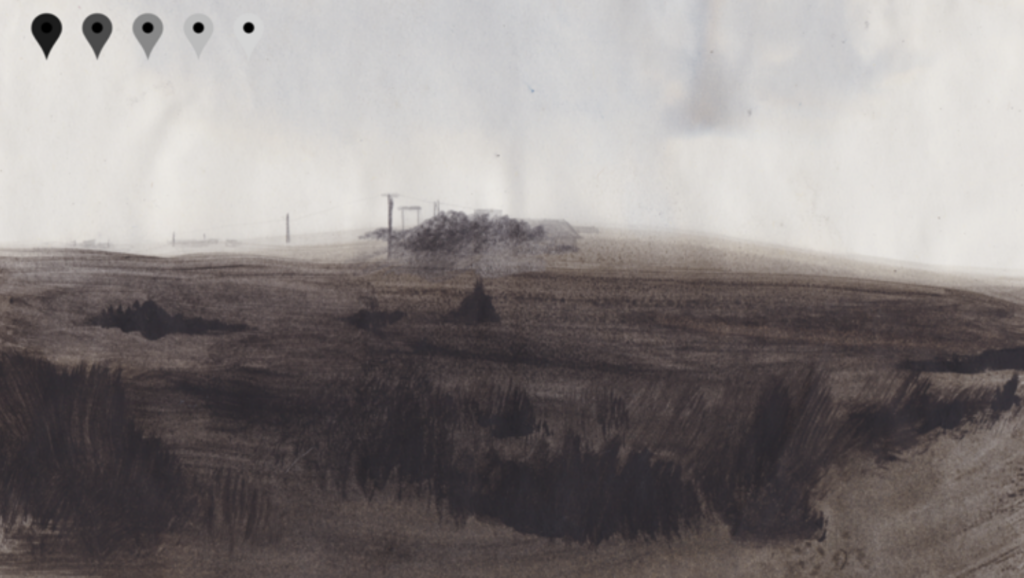
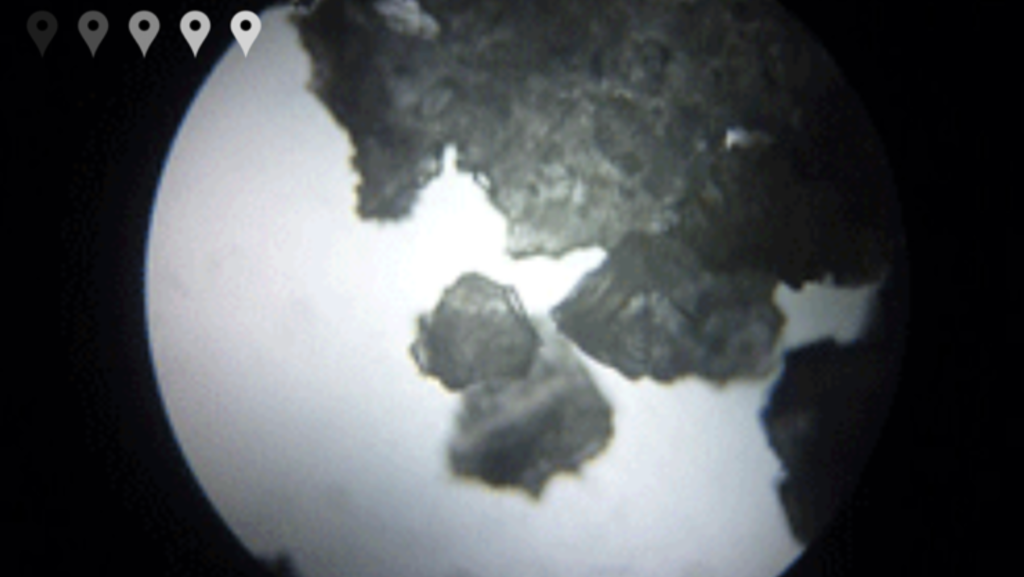
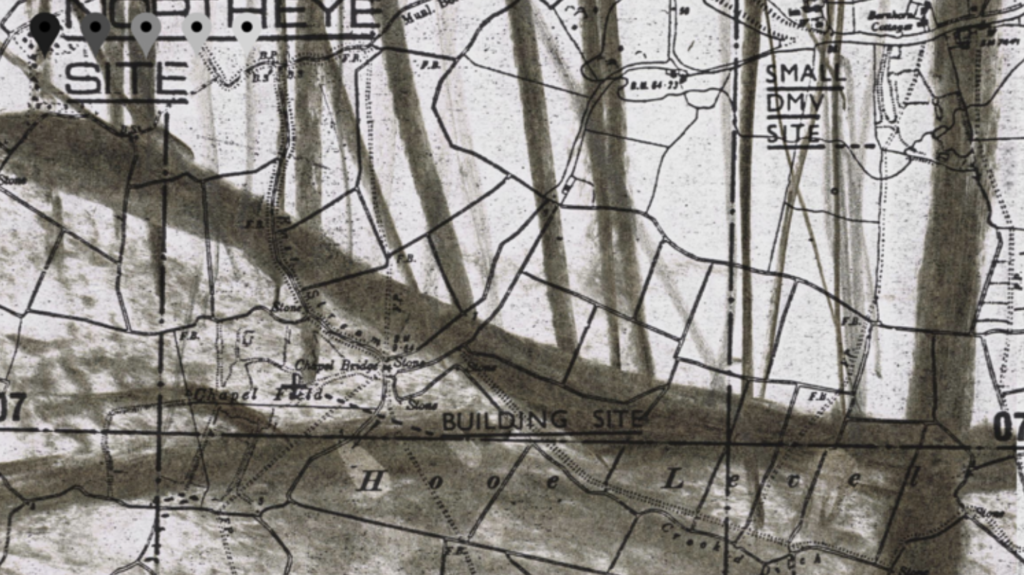
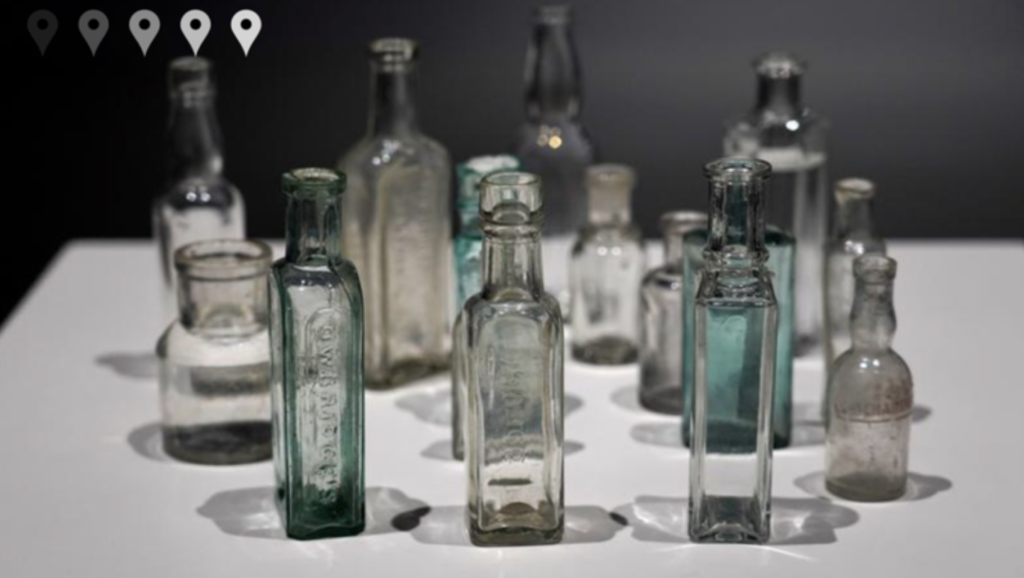
NORTHEYE
DMV*
* Deserted Medieval Village
Once belonging to an archipelago on the southeast coast of England, Northeye is scheduled under the Ancient Monuments and Archaeological Areas Act, and forms part of the Ramsar listed wetland Pevensey Levels. The island was part of a network of salt extraction sites across Pevensey Levels and became a hub for surrounding trade and industry as a limb of the Cinque Port of Hastings. A chapel once stood on the highest point of the island.
Wetlands are transformative. Physical markers and shifting boundaries between land and sea can dramatically change the location of a site, bringing its very existence into question. Following a series of storms in the thirteenth century devastating the coastline, the settlement was deserted and has since served as pastoral agricultural land. Historic documentation on Northeye is fragmented; lost excavation reports, inconclusive geoarchaeological data and conflicting archival records mirror its physically elusive state. The extent and reach of the deserted medieval village is unknown and the site currently exists as earthworks. A number of public footpaths lead to the monument, several of which are at risk of disappearing.
The creative artefacts collated in this repository explore hidden, lost and abandoned narratives at the site, bringing together fieldwork and archival research undertaken between 2015-2020. These include an installation of research in progress at Bexhill Museum, Bexhill-on-Sea, an audio-visual documentary screened at Bexhill Museum, the Herbert Read Galley, Canterbury, and the Maraya Arts Centre, Sharjah, alongside an interactive assemblage of visual and textual fieldwork. Navigate the pins to reveal different elements of Northeye’s story.
This project is generously supported by Bexhill Museum and the London Doctoral Design Centre. It forms part of a doctoral research investigation undertaken by Leah Fusco at Kingston School of Art, titled ‘Illustrating Northeye: An Exploration of Time, Matter, and Movement at a Historic Wetland Site’.
Leah Fusco Artist in Residence at Bexhill Museum
28 January – 15 December 2019
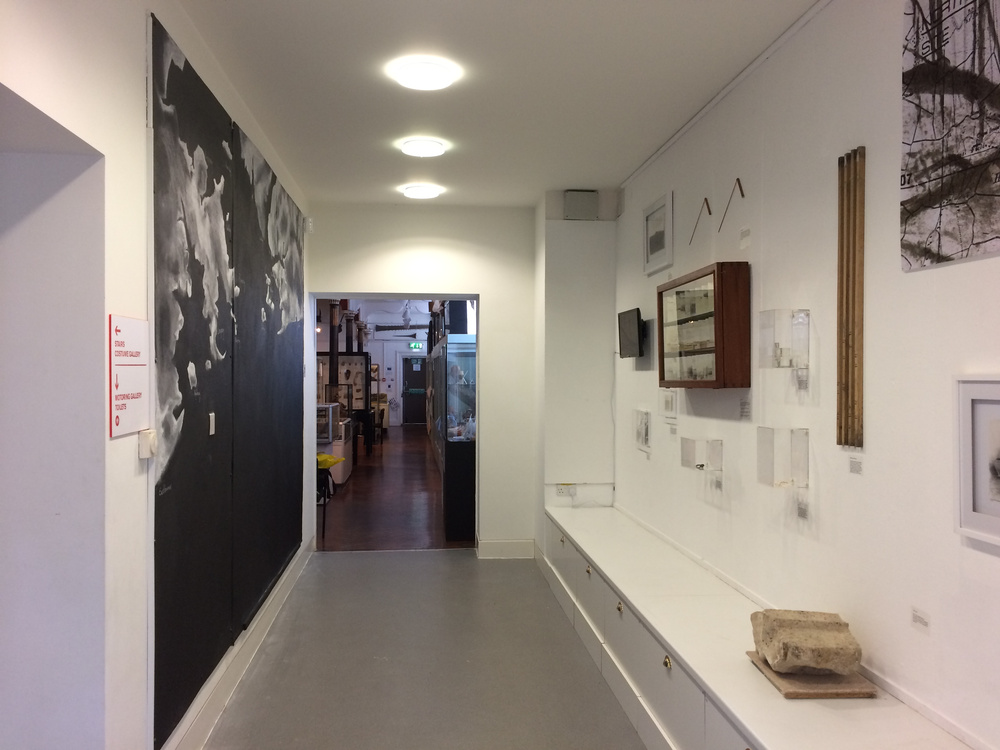
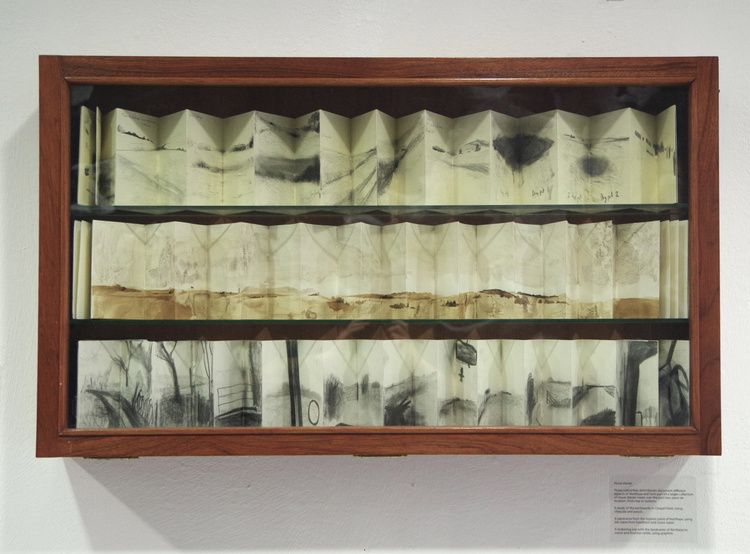
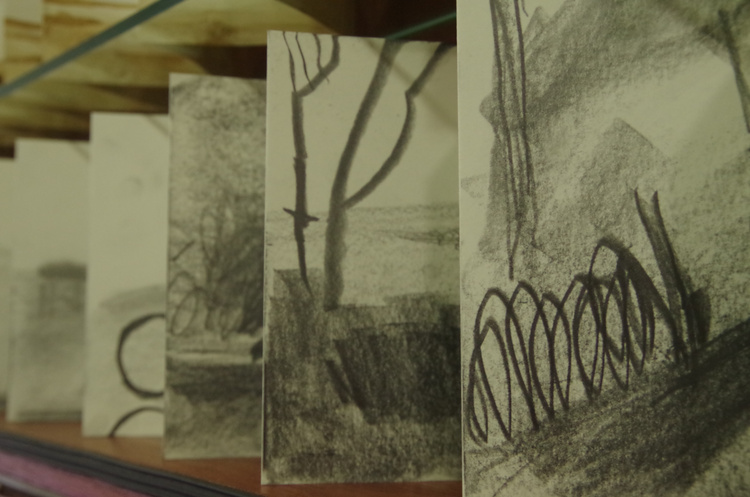
Northeye is a deserted medieval village in East Sussex, once an island on the southeast coast of England and a limb of the Cinque Port of Hastings. Scheduled under the Ancient Monuments and Archaeological Areas Act 1979 and the Convention on Wetlands of International Importance (Ramsar), the site now exists as reclaimed agricultural marshland. Alongside physical changes in the landscape, documentation of Northeye is fragmented through lost reports, inconclusive data and conflicting records. The extent and reach of the site is currently unknown, with the remnants visible as a series of shallow earthworks.
Through drawing, painting, animation and mapping, Leah has responded to Northeye on location, often using processes and materials orginating from the site itself. She has spent time with documents and artefacts at Bexhill Museum to unearth stories from the archive and to explore evidence of the deserted village. Past and present viewpoints are brought together, from archaeologists, farmers and water engineers to cartographers, walkers and livestock currently inhabiting the landscape, in a multilayered telling of Northeye’s story.
During her time at the museum, Leah will create a large-scale map with chalk collected from the site to draw the shifting coastline, reflecting over a thousand years of geographic change. Exploring the theme of reclaimation, the exhibition looks at the role of creative practice in bringing hidden, lost and abandoned places into public knowledge.
Northeye (2019)
Northeye is a single screen documentary responding to the deserted medieval village of Northeye. A script developed from archival research, collected accounts, personal experience and historic and geoarchaeological material is used to narrate a visual exploration of the site.
Northeye has been screened at Bexhill Museum, Bexhill-on-Sea, Herbert Read Gallery, Canterbury and the Maraya Arts Centre, Sharjah.
- Scape (n.d.). Available at www.macmillandictionary.com/dictionary/british/scape [Accessed: 22 March 2021]
- Embury, G. and Minichiello, M. (2018), Reportage illustration: visual journalism. London; New York: Bloomsbury Visual Arts.